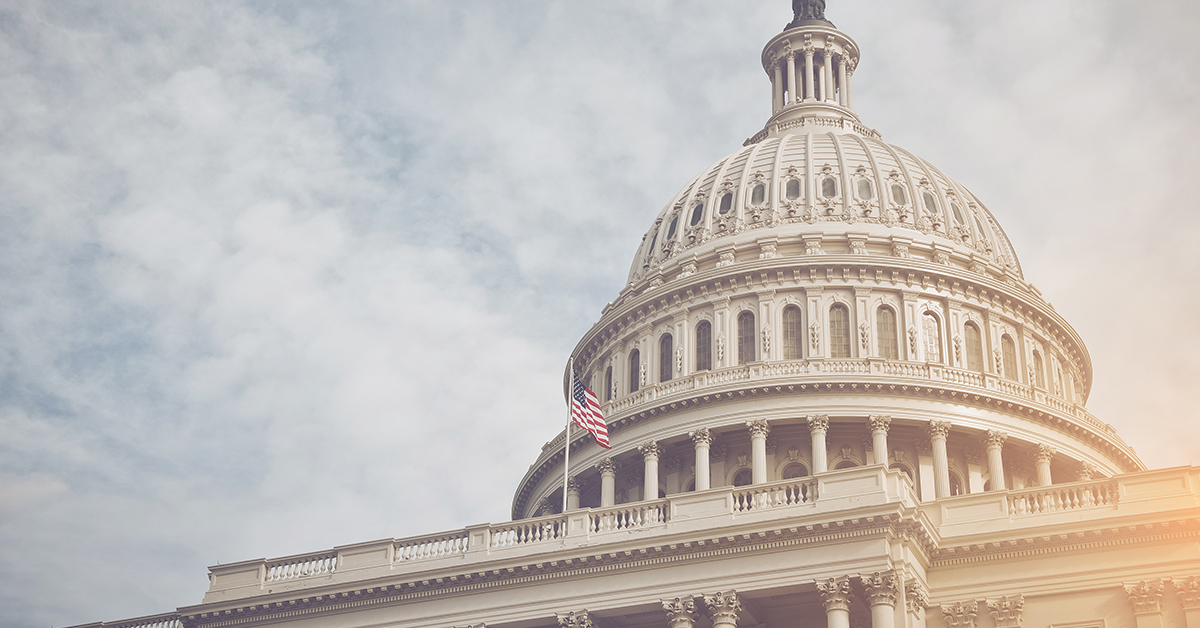The Coronavirus Economic Stabilization Act of 2020
 Yesterday, Senate Republicans introduced their version of the 3rd coronavirus-focused legislative package, The Coronavirus Economic Stabilization Act of 2020. This will mark the start of negotiations, which will take place throughout the weekend with a goal of votes in the House and Senate next week.
Yesterday, Senate Republicans introduced their version of the 3rd coronavirus-focused legislative package, The Coronavirus Economic Stabilization Act of 2020. This will mark the start of negotiations, which will take place throughout the weekend with a goal of votes in the House and Senate next week.
It is a lot to wade through, but some of the key features include:
Impacted Industries
- The legislation provides a total of $208 billion to the Secretary of the Treasury, through the Exchange Stabilization Fund, to provide sufficiently collateralized loans and loan guarantees to eligible entities, broken out in the following amounts:
- Up to $50 billion for passenger air carriers;
- Up to $8 billion for cargo air carriers; and
- Up to $150 billion for other eligible entities.
- An entity is only eligible for relief if the Treasury Secretary determines its continued operations are jeopardized as a result of losses stemming directly from the coronavirus outbreak.
- Interest rates on any loans extended by the Treasury Secretary may be no less than the current average yield on outstanding marketable obligations of the United States of comparable maturity.
- The legislation explicitly bars the Treasury Secretary from using the funds provided to make grants or direct cash payments to entities: The legislation also mandates that entities receiving assistance under the Act do not increase compensation for, or provide golden parachutes to, executives over a two-year period from the date of enactment.
Small Business Support
- Provides cash-flow assistance through 100% federally guaranteed loans to employers who maintain their payroll during this emergency. If employers maintain their payroll, the loans would be forgiven, which would help workers to remain employed and affected small businesses and our economy to quickly snap-back after the crisis.
- Expands the allowable uses for 7(a) loans to permit payroll support, including paid sick leave, supply chain disruptions, employee salaries, mortgage payments, and other debt obligations to provide immediate access to capital for small businesses who have been impacted by COVID-19.
- Provides $240 million in grants for SBA Small Business Development Centers and Women’s Business Centers for counseling, training, and related services for small business owners impacted by COVID-19.
- Authorizes $25 million for SBA to provide grants to associations representing resource partners to establish an online platform that consolidates resources across multiple Federal agencies and a training program to educate small business counselors on those resources to ensure counselors are directing small businesses appropriately.
- Provides $10 million in grants for Minority Business Development Agency’s Minority Business Centers to offer small business owners impacted by COVID-19 counseling, training, and technical assistance.
Relief for Individuals
- Recovery checks of up to $1,200 will be put into the hands of most taxpayers. Married couples who file a joint return are eligible for up to $2,400. Those amounts increase by $500 for every child. These checks are reduced for higher income taxpayers and begin phasing out after a single taxpayer has $75,000 in adjusted gross income and $150,000 for joint filers. The amount is completely phased-out for single taxpayers with incomes exceeding $99,000 and $198,000 for joint filers. The IRS will base these amounts on the taxpayer’s 2018 tax return. Taxpayers with little or no income tax liability, but at least $2,500 of qualifying income, would be eligible for a minimum rebate check of $600 ($1,200 married). Qualifying income includes earned income, as well as Social Security retirement benefits and certain compensation and pension benefits paid to veterans. This ensures relief gets to low-income seniors and disabled veterans.
- Extends the April 15 filing date to July 15, giving individuals more time to file their tax returns given the limitations caused by the COVID-19 emergency.
- Consistent with previous disaster-related relief, this provision waives the 10% early withdrawal penalty for distributions up to $100,000 from qualified retirement accounts for coronavirus-related purposes. In addition, income attributable to such distributions would be subject to tax over three years, and the taxpayer may recontribute the funds to an eligible retirement plan within three years without regard to that year’s cap on contributions. Further, the provision provides flexibility for loans from certain retirement plans for coronavirus-related relief.
- Encourages Americans to contribute to churches and charitable organizations in 2020 by permitting them to deduct up to $300 of cash contributions, whether they itemize their deductions or not.
Hospitals and Health Centers
- The package would also provide community health centers an added $1.32 billion and would lift Medicare “sequestration” payment cuts this fiscal year, among other provisions. Such payment cuts to hospitals and doctors would slash more than $15 billion from Medicare payments in fiscal 2020. Ending those payment cuts was among the top requests made by hospital groups, who argued that U.S. health-care providers are losing as much as $1 million every day due to the coronavirus outbreak.
- Proposes that Medicare give hospitals an added payment for caring after Covid-19 patients that amounts to a 15% bonus and would allow for boosting telehealth services for Medicare patients at some health centers and rural clinics during the health emergency. It would bolster some Medicare home-care services as well.





